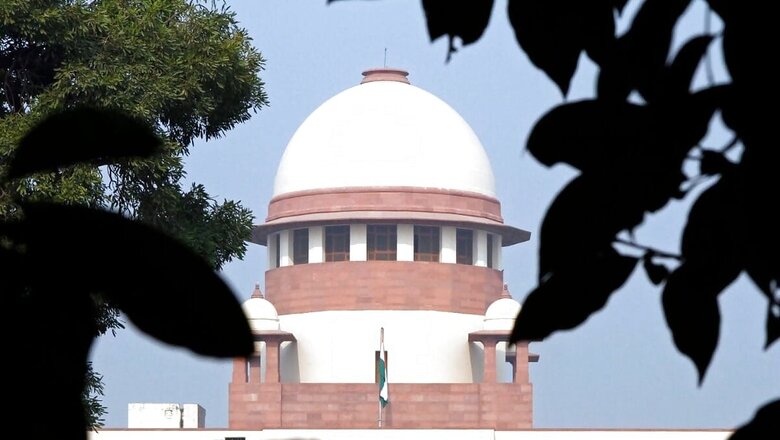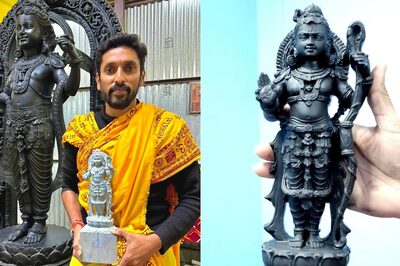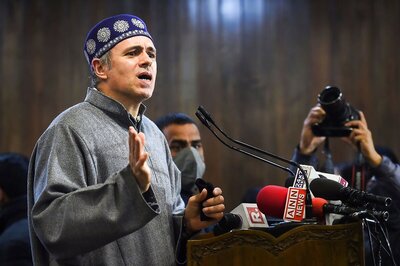
views
Just before the end of a stormy monsoon session, a bill was tabled in the Rajya Sabha that was not part of the list of 31 tabled for passage. It was the Chief Election Commissioner and other Election Commissioners (Appointment, Conditions of Service, Term of Office) Bill 2023.
As the name suggests, the bill aims to regulate the appointment, conditions of service and term of office of the chief election commissioner (CEC) and other election commissioners (EC) along with the procedure for transaction of business by the poll body and matters connected. The bill states that a selection committee with the prime minister as the chairperson, the leader of opposition (LoP) in Lok Sabha and a union minister nominated by the PM as members will select the CECs and the ECs.
In March, the Supreme Court ruled that the appointment of the CEC and ECs will be made by a committee composed of the PM, Leader of Opposition in Lok Sabha and the Chief Justice of India (CJI) until a law is made to this effect. The panel will give their suggestions to the president, who will then appoint the CEC and ECs.
The bill is replacing the CJI with a union minister, who will be nominated by the PM. Before the SC order, for the appointment of the CEC, the law minister suggested a pool of suitable candidates to the PM for consideration. It is the PM who selects the candidate and the president makes the appointment.
Manohar Singh Gill, who served as the CEC for six years from 1996, told News18 that the picture is still better than only the PM selecting the poll body head, adding that only time will tell how this will turn out.
“The picture is still better than the prime minister having the sole power. But the prime minister nominating a union minister is wrong. The two will speak the same language. But it is good that the LoP is there and will have a say… only time will tell how this will impact the appointments but, if everything is not okay, the Supreme Court is still there,” he said.
During his term and after that, Gill was among those who had demanded a collegium for appointing CECs. In March, he had welcomed the SC verdict saying the PM of the day appointing all the ECs can lead to partiality.
“Abhi toh prime minister hi appoint karta hai (at present, the prime minister makes these appointments), right from the beginning. Jisko marzi woh appoint kar de (they appoint whoever they want), that’s what the Congress was doing, that’s what the BJP is doing… That is naturally imbalanced,” he had said.
Further, there was no specific qualification required to be a candidate for the post of CEC or EC. But, as per the proposed bill, the CEC and other ECs should be appointed from among those who hold or have held a post equivalent to the rank of secretary at the Centre. They should be persons of integrity, with knowledge and experience in management and conduct of elections.
Commenting on this, SY Quraishi, CEC between 2010 and 2012, said now the qualification has been prescribed and it is a good move. “It is a good thing because civil servants are the only ones who have the experience of holding elections. We have conducted elections for a long time. Therefore, it is a good thing,” he told News18.
Listing out the pros and cons, Quraishi said the presence of the LoP is just a token and, if the committee will have two members from the government, they are going to have more say.
“It is a joke. Three members should be independent of each other. Do you think the prime minister and his nominated minister can have two different opinions? This is wrong,” he said.
On the bill’s provision that states that the appointment of the CEC and the ECs will not be invalid merely by reason of any vacancy in or any defect in the constitution of the selection committee, Quraishi said: “What is this? So this means that even when the LoP is not there, it cannot be challenged? Does this make sense?”
He went on to say there are some good elements in the bill and some bad, and that the government may have to work to improve this. “Shortlisting committee is a good idea but we have to realise that they (potential candidates) will be pre-approved by the government, and the LoP will have to choose from these alone. Another defect is that the selection committee can consider any other person than those included in the panel by the search committee. Is it not a joke with the search committee? They will make a list but you will say we will bring a sixth person,” he said.
Another former CEC, who did not wish to be named, said they are happy with the fact that now even ECs are protected, unlike earlier when they could be removed just by a letter from the CEC or the executive.
“So far, the only way to remove the CEC from the post was through impeachment. But the ECs could be removed very easily. It was a defect and it is rectified now,” they told News18.
They went on to say there are a number of shortcomings in the bill, which can be corrected and this will happen through a discussion.
The monsoon session has ended without the bill being passed by any house.

















Comments
0 comment